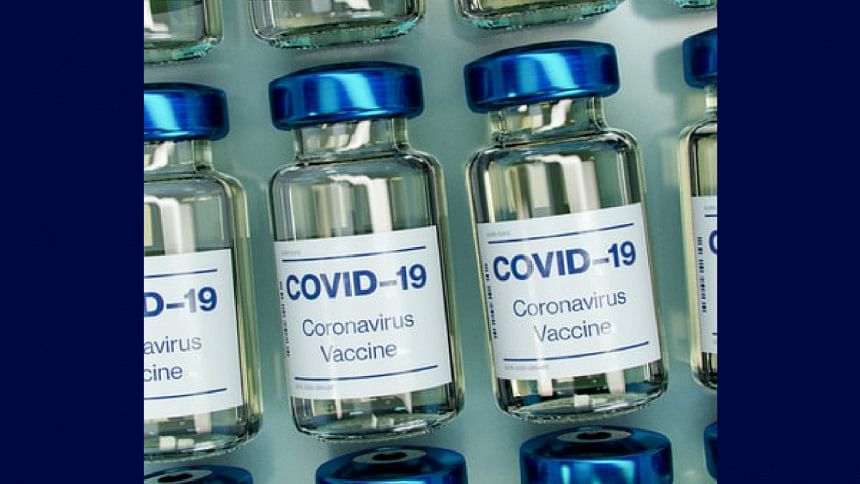Why Bangladesh should be concerned about the emerging Covid variants

Since January 2021, Bangladesh has confirmed the presence of five Covid-19 variant strains -- Alpha (B.1.1.7) aka the "UK variant", Beta (B.1.351) aka the "South Africa variant", (B.1525), Gamma (P.1) aka the "Nigeria variant", and Delta (B.1.617.2) aka the "India variant". These variants raise concern because of their high transmissibility and infection potential. Public Health England reports that the Alpha variant, for example, is approximately 25 to 40 percent more transmissible than the first recorded strain of the Covid-19 virus.
Transmission rates are not the only concern regarding these variants -- they may also cause more severe disease. Most recently, Public Health England reported that the Delta variant was not only more transmissible among close contacts than the Alpha strain, but was also associated with higher hospitalization rates in England and Scotland. According to sequencing data, the second wave in India was mainly powered by the Alpha and Delta variants, both currently present here in Bangladesh. Scientists use genomic sequencing data to decode genes and unlock information about how viruses function. Sequence data allows scientists to identify SARS-CoV-2 and its mutations, study how it affects the virus's composition, and understand how it influences human health.
Praava Health is concerned about the emergence of new variants and their impact on Covid testing and the spread of the disease in Bangladesh and beyond. To date, Bangladesh has contributed over 4,000 samples to global sequencing data -- a level of sequencing that is sadly exceptionally low for a population the size of Bangladesh's. Of the 172 countries that have uploaded sequencing data for 1.2 million cases, many report less than 1% of their cases. Bangladesh's sequencing is much lower with only .005% of all cases being submitted to GISAID, the global repository for Covid-19 genome sequencing.
To expand and contribute to our collective knowledge on the circulating variants in Bangladesh, Praava is collaborating with a research foundation, CHRF, to determine which variants are captured in the Covid samples processed by Praava Health and to determine the fidelity of Covid testing in the light of the emerging variations in viral genome and the effect on population health. Data from Praava is contributing to GISAID, a global, open-access repository of SARS-CoV-2 genome sequences.
In Bangladesh, the border areas of Dhaka are now facing the brunt of the rising trend of Covid-19 cases. Khulna Division has emerged as the most impacted, with a test positive rate of 36.05%. On the other hand, Dhaka is so far the least impacted of all the divisions, with an infection rate of 7.02%. As we have witnessed in neighboring India, a catastrophic epidemic can result in tremendous fatalities. To prevent similar outcomes, Bangladesh must act quickly specifically by increasing our vaccination efforts.
The World Health Organization (WHO) states that getting vaccinated is one of the best ways to protect yourself and others from Covid-19. Most of the Covid-19 vaccines target the spike protein on the surface of the virus and help your immune system develop neutralizing antibodies that protect you from infection. However, the variants have multiple mutations on this surface spike protein and the impact of these mutations on vaccine effectiveness is a topic of ongoing research. Preliminary unpublished reports from laboratory studies (as well as emerging clinical data) suggest that currently approved vaccines still retain their effectiveness against the variants, though at a lower magnitude of protection. Nonetheless, it appears that vaccines can protect patients from the variants' severe effects and lower the rates of hospitalization and deaths.
Vaccine supplies must be transferred now to the areas where the crisis is most severe. Although children and young adults are far less likely than adults to be hospitalized with COVID-19, we should begin vaccinating them with the same urgency and large-scale coordination efforts as adults if we want to reduce Covid-19 cases and eventually halt the pandemic.
Half-hearted preventive measures are a major reason behind the worsening Covid situation in the country. While vaccines are important, masks and social distancing are equally effective against variants too. The fastest approach to recover from the pandemic is to combine these mitigation tactics with vaccination. The sooner we act, the likelier we are to return to normalcy.
Sylvana Q Sinha is Founder, Chair and CEO of Praava Health.
Dr Zaheed Husain is Senior Laboratory Director of Praava Health.

 For all latest news, follow The Daily Star's Google News channel.
For all latest news, follow The Daily Star's Google News channel. 



Comments